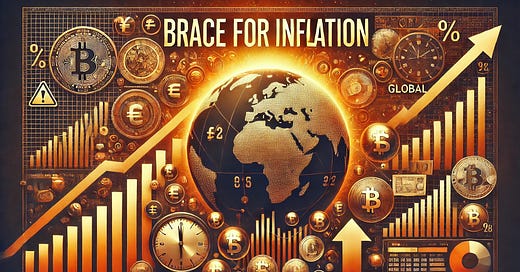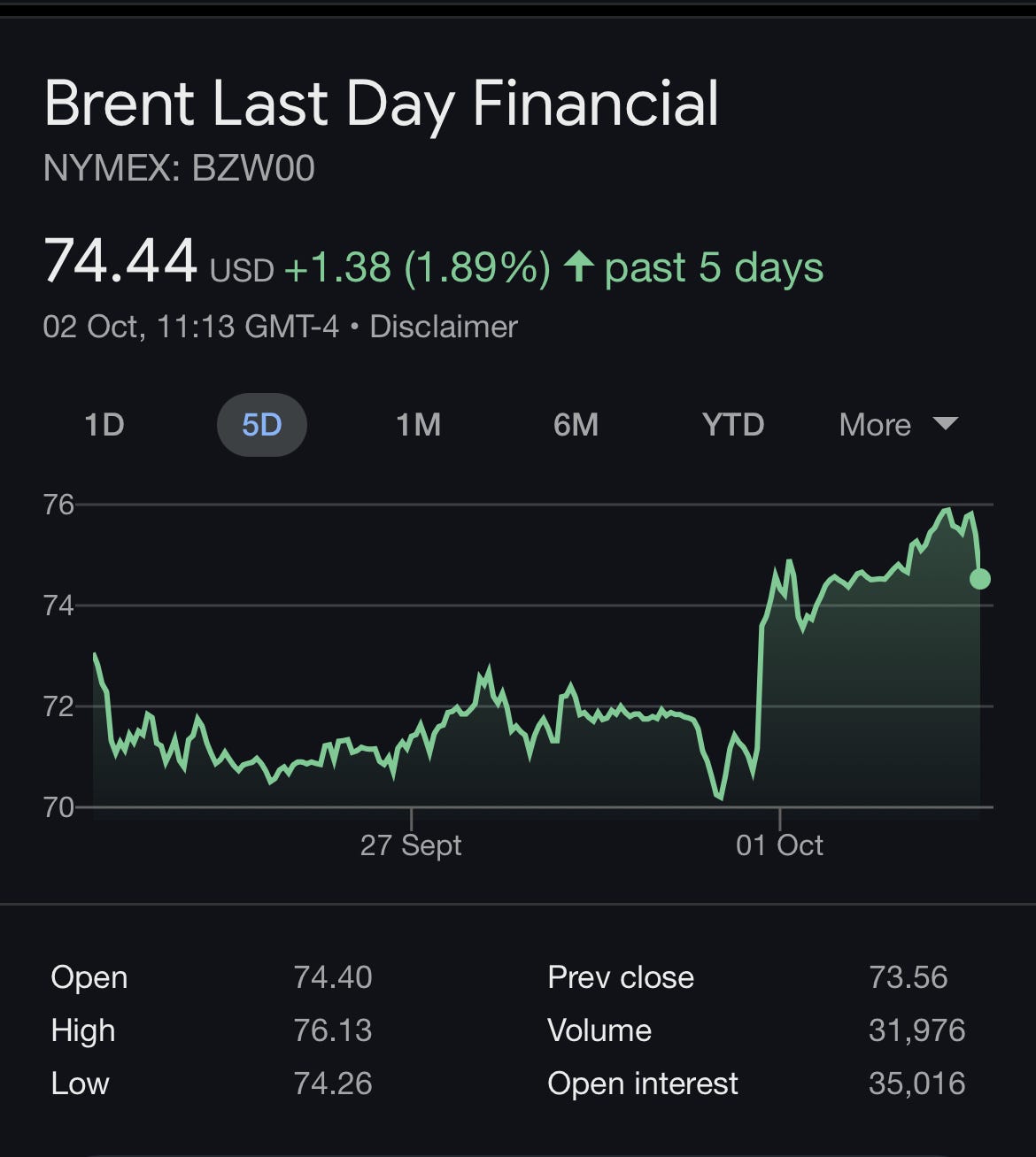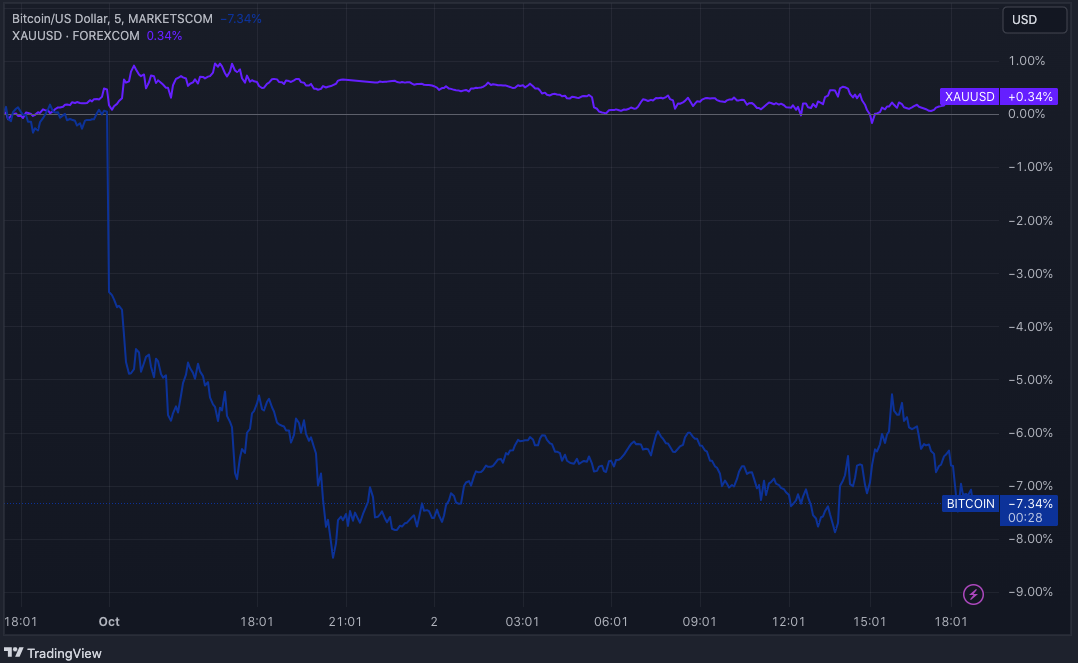To Investors
This past Tuesday the International Longshoremen Association (ILA) (a union for dockworkers in the U.S.) officially went on strike, demanding a 70%+ wage increase and a ban on automation technology in United States ports.
This strike is affecting 36 ports in the U.S. including some of the largest facilities in New York, New Jersey, Savannah, and Houston.
There have been reports that this strike will cost the U.S. economy $3 billion a day, and the impact of the strike will cause global supply chain disruptions which will lead to inflation on goods imported from the U.S.
FYI, port automation is taking off rapidly globally and port workers are afraid of losing their jobs as a result.
You must see these examples of automation at a Chinese port in Guangzhou, at the London Gateway port, and at the LBCT in Long Beach.
As the ILA strike kicked off in the U.S., Iran launched 180 ballistic missiles at Israel and Israel has vowed to retaliate.
In response, oil prices went up from $70 to $74 in a day.
While Iran was attacking Israel, Houthi rebels continued their attacks on commercial ships along the Red Sea, this time hitting two additional ships in the Red Sea. It’s reported that Houthi rebels have launched over 80 attacks on commercial ships since October 2023.
The impact of restricted global trade caused by the Covid pandemic is still fresh in our minds, and the world is still trying to recover from that.
If the conflict between Israel and Iran escalates into a larger Middle East-wide war, on top of the fact that commercial ships have to reroute around South Africa to avoid the Red Sea, on top of the worker strikes at U.S. ports - we will again experience broader supply chain disruptions that will lead to inflation.
For South Africans, consider the fact that the South African Reserve Bank (SARB) was likely entering a new regime of lower interest rates (which were desperately needed by the South African economy) because there was a belief that inflation was calming down.
Now, the longer these disruptions are allowed to continue, the higher the likelihood that inflation rises again in the country because of higher import costs and higher transport costs; as oil prices rise, coupled with the restricted trade flows from the disruptions mentioned above. As a result, the SARB will pause rate cuts, which will be a huge blow to the South African economy and to consumers.
Now is the time for President Putin, Xi, Netanyahu, and Prince Bin Salman to show courage by coming together to dampen these tensions immediately.
In the interest of protecting their economy, I’m optimistic that the US Maritime Alliance will agree to favourable wage increases quickly and act to better inform workers about the benefits of automation.
And on the Israel-Iran issue, my biggest hope is that it doesn’t escalate into a larger regional conflict or even a World War 3 situation, the likelihood of which is increasing the longer we go without the leaders named above showing courage.
It may seem a little off to talk about asset prices but these are the types of global events that investors look at when allocating capital.
Its early days but gold as a general safe haven asset is yet to reflect any reactions from the events described above.
The bitcoin market may however be signalling risk aversion, down 7% in a day.
The FX markets may also be echoing similar risk aversion sentiment with the Japanese Yen, South African rand and Israeli Shekel all down slightly in a day.
I hope you enjoyed reading this letter
On the journey to becoming a master capital allocator, one lesson down, a billion more to go.
Chat soon,
-Mansa







